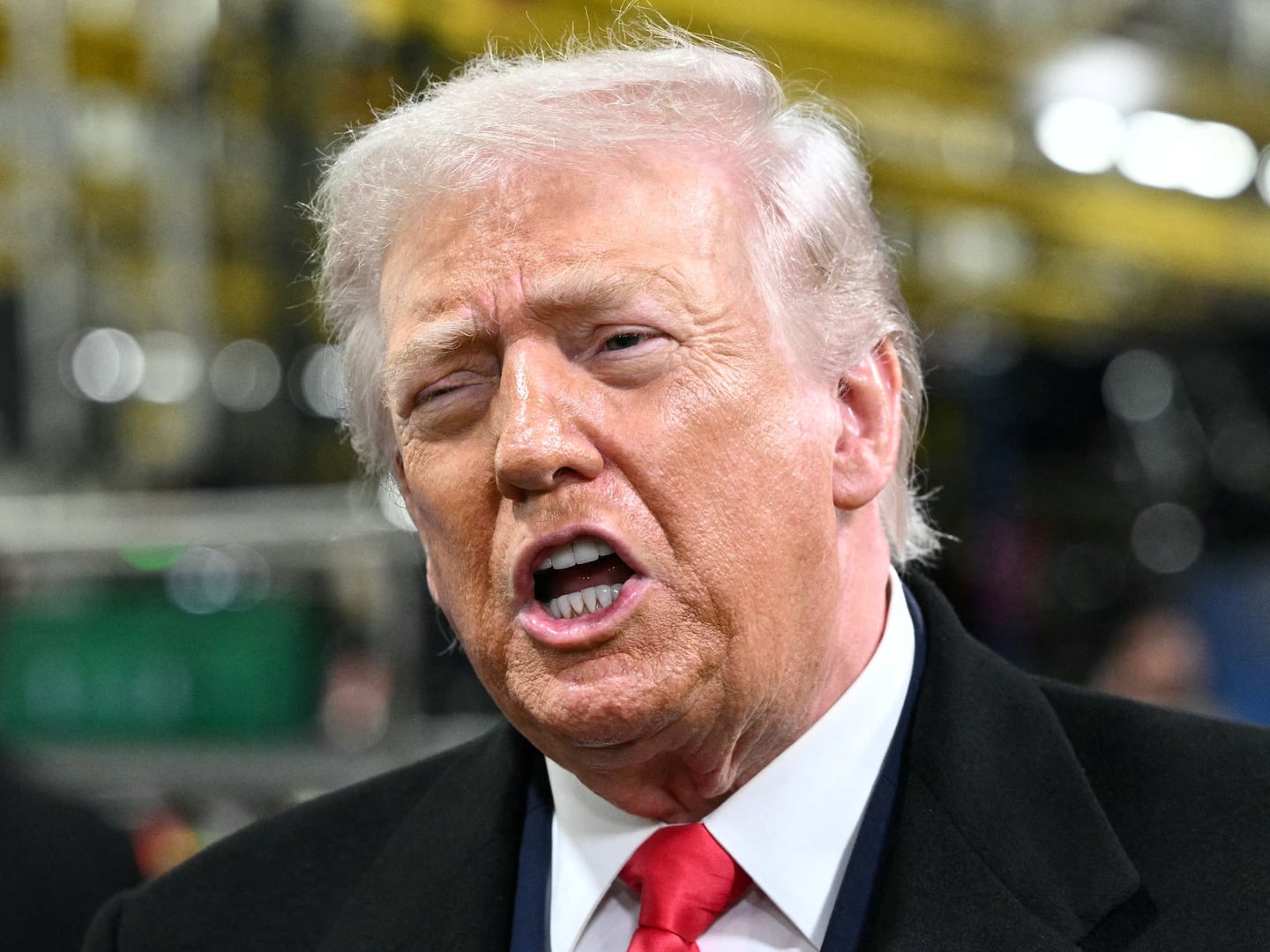In his annual televised New Year’s address, Kim Jong Un said “a nuclear button is always on my desk,” “the entire United States is within range of our nuclear weapons,” and he’s willing to send athletes to South Korea for the PyeongChang Winter Olympics next month.
“The year 2018 is a significant year for both the North and the South, with the North marking the 70th anniversary of its birth and the South hosting the Winter Olympics,” Kim was quoted as saying. “We should melt the frozen North-South relations, thus adorning this meaningful year as a year to be specially recorded in the history of the nation.”
Choe Sang-Hun of The New York Times writes that the address represents “a dramatic shift in tone and policy.”
Shift in tone? Yes. Shift in policy? No.
Pyongyang’s policy has been remarkably consistent from one decade to the next. Kim’s speech on New Year’s Day may be, as Bloomberg Politics declared, “the most promising peace overture from North Korea since President Donald Trump took office,” but the address is also consistent with the Kim family’s 70-year-old attempt to subjugate the other Korea, the one governed from Seoul.
In other words, Kim’s address only marks the beginning of an oft-seen phase of his family’s established cycle of troublemaking.
And as Lee Sung-Yoon of Tufts Fletcher School suggested in comments to The Daily Beast, what follows this new phase could be ominous.
Kim, in his New Year’s address, reached out to South Korean President Moon Jae-in, the so-called progressive who has been looking, from the moment of his inauguration in May of last year, to establish relations with Pyongyang, engage Beijing, and move away from Washington.
Up to now, Moon has been mostly blocked by two forces. First, his American ally, President Trump, has worked hard to cut off cash to Kim’s regime and has accordingly boxed Moon in. Second, the North Korean supremo has rebuffed Moon’s generous overtures.
Monday’s New Year’s address, therefore, represented Kim’s first real opening to Moon. The concern is that the over-eager South Korean leader will now begin pouring cash into Kim’s coffers, undercutting American and international efforts to starve his regime.
As Seoul’s Institute for National Security Strategy suggests, the North might require the South, as a condition to Pyongyang participating in next month’s Olympics, to remove sanctions, resume inter-Korean projects, and supply assistance.
Moreover, Kim undoubtedly has even bigger ambitions. By making Washington look intransigent, he hopes to win even greater support from Moscow and Beijing. And his ultimate goal is to break the seven-decade-old U.S.-South Korea alliance, get 28,500 American troops off the peninsula, and intimidate South Koreans into permanently accepting his rule.
“Inconceivable as it is to most Americans, Pyongyang actually sees itself as the party that wields the carrot and stick,” the Fletcher School’s Lee said. “It knows when to come down the escalation ladder, and, after a banner ballistic year in 2017, Kim has nothing to lose by sending athletes to the South and giving wind to the message by Seoul, Beijing, and Moscow that the U.S. should deescalate and give concessions to Pyongyang.”
It looks like Kim changed tactics at just the right moment. “After getting nowhere with the Americans, North Korea is now trying to start talks with South Korea,” Yang Moo-jin of the University of North Korean Studies told The New York Times.
“Seoul will bite,” Lee predicted. And it appears he’s right. Park Soo-hyun, Moon’s spokesman, has already given a favorable response to Kim’s address, and South Korea is offering to hold high-level talks Jan. 9 with North Korea to discuss Olympic cooperation. Lee Hee-beom, president of the PyeongChang organizing committee, likened North Korea’s willingness to participate in the Games to “a gift on New Year’s Day.”
Gift? Call Kim’s present a Trojan horse.
“Pyongyang’s peace offensives are usually preludes to provocations,” Lee pointed out.
As he told me, the North fired artillery into the South only days after three top North Korean officials attended the closing ceremony of the Asian Games in Incheon in 2014. Moreover, the North in 2010 killed 50 South Koreans in two deadly incidents that closely followed North Korean overtures. The cycle goes back to the start of the Korean War: Regime founder Kim Il Sung offered to start talks with Seoul just before he invaded in June 1950.
Why send the South Koreans a Trojan horse now? This time, sanctions, imposed by both the U.N. Security Council and the Trump administration, are beginning to bite, so the stakes are high for the Kim family.
Junior officials, members of the regime’s favored class, are no longer getting rations from their special distribution channels, for instance. The regime is now requiring an acceleration in “loyalty payments,” a sign of severe cash flow problems.
Even privileged soldiers serving in the most sensitive areas look malnourished. The sergeant who defected on Nov. 13 through the Joint Security Area in the Demilitarized Zone had, in addition to parasites, uncooked kernels of corn in his digestive tract, a sign he had been scrounging for food just before his dramatic escape to South Korea.
The Kimster, therefore, could be just this side of desperate, so we shouldn’t be surprised he is switching tactics now. And if Seoul takes the bait—lets in this particular Trojan horse—his next provocation could be one history remembers.





